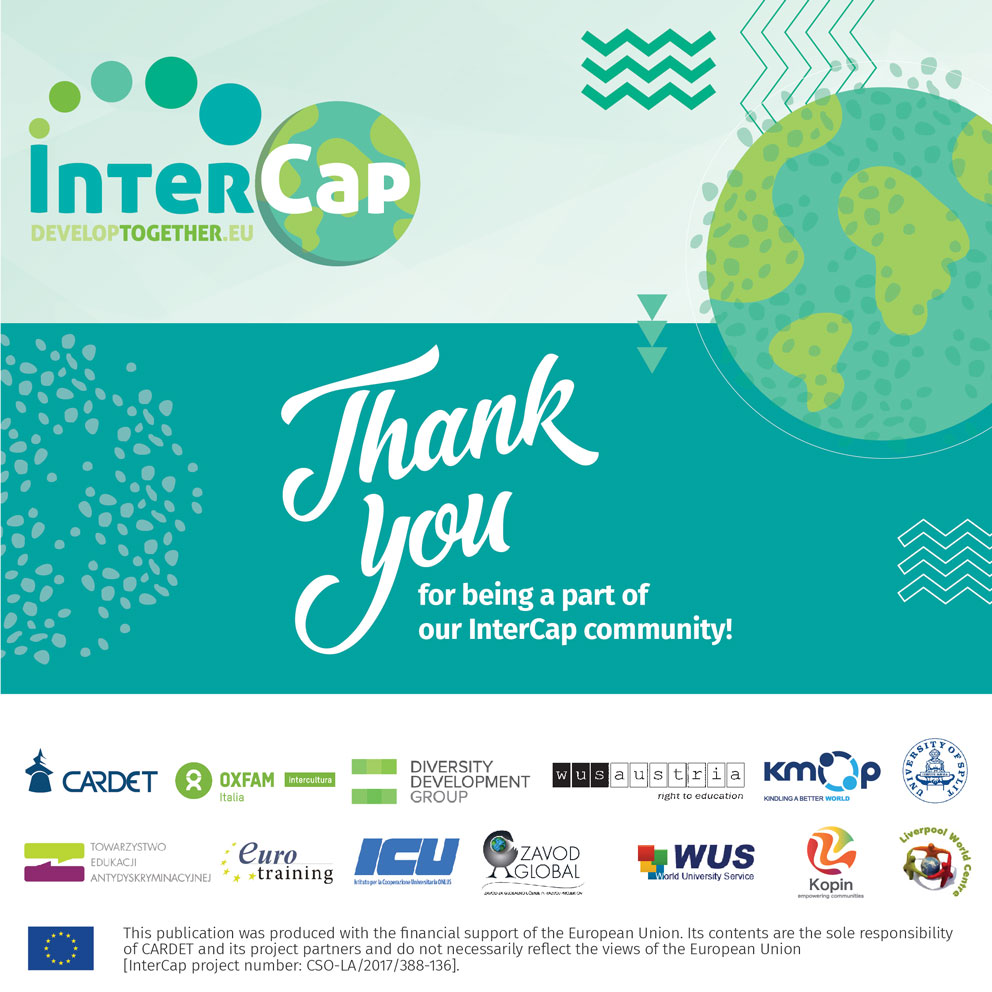
With the adoption of the Agenda 2030 for Sustainable Development in 2015, the Member States of the United Nations have effectively put into place an ambitious action plan for a more peaceful and prosperous world and a healthier and more sustainable planet. The 17 Goals for Sustainable Development (SDGs) set in this action plan, have as their main aim to respond to the needs of today’s generation without compromising the satisfaction of the needs of future generations. At the same time, it was acknowledged that we live in an interconnected world in which solidarity must prevail and the appropriate steps must be taken to create the conditions for the eradication of global poverty so that no one is left behind.
However, apart from the stated intentions and the political initiatives and actions, a very important parameter for the successful adoption and implementation of the goals of the Agenda 2030, is to be embraced and supported by the society as a whole. A fact that highlights once again the importance of education and the contribution and role that civil society organizations, teachers and citizens can play. Only if citizens obtain a global understanding of what sustainable development is but also issues directly related to it such as migration, security and climate action can promote the importance of working together and the steps needed to achieve the objectives of the Agenda 2030.
In this direction, InterCap brought together 13 organizations from 12 different EU countries specialized in teachers’ training, educational reform, sustainable development and migration issues, along with more than 150 associates from all over EU (local authorities, Ministries, Universities, and CSOs). The Action’s priority was to establish European CSOs- University networks, to build the capacities of the education actors, to promote global learning on migration, security and sustainable development in an interdependent world.
Based on a structured action plan, the project sought to ensure coherence in the provision of development education, the enrichment of existing training materials in the field as well as the enhancement of the skills and knowledge of teachers and trainers in the field of global education.
Specifically, InterCap contributed to the establishment of European networks between universities and civil society organizations to strengthen the cross-sectoral collaboration to promote global education. At the same time, the project partnership worked together to develop a comprehensive training package, which is available for free and accessible through the project’s eLearning platform. The training package with the use of participatory educational methods focuses on promoting Global Education with an emphasis on the concepts of ‘migration’, ‘(in)security’ and ‘sustainable development’. The methodologies developed and/ or adopted as part of the InterCap Training Package are the following:
- Philosophy for Children (P4C), focused on thinking, reasoning and questioning, also focus on Global Citizenship);
- Open Spaces for Dialogue and Enquiry (OSDE), referring to the creation of open safe spaces for critical thinking and discussion about global issues; and
- Theatre for Living (T4L), drama and theatre as agents of social change.
Through these methods, both children and adults have the opportunity to explore in a pleasant way complex issues such as migration and sustainable development are.
At the same time, the partners’ consortium organised and implemented a number of educational and informative actions and events at local and European level, to enhance the perception, knowledge and skills of teachers, educators, trainers, representatives of the civil society and policy makers on the importance of global agenda and the Policy Coherence for Development. Another important aspect of the project was the opportunity that young people had through a paid internship scheme to be placed in CSOs and Institutions in the partner countries in order to support the project’s activities as well as to enhance their knowledge in the field. The support coming from local authorities, the civil society, Universities, schools and other Public institutions was also of great importance throughout the project implementation.
Finally, InterCap partnership drafted and published a series of papers promoting the actions made on Policy Coherence for Development, both nationally and transnationally; the best practices on the communication aspect based on lessons learned throughout the project cycle and the partnerships established with University Institutions. A range of research and studies on global education, trends and data in the field was also conducted and promoted in the participating countries and across Europe.
Even though the InterCap project comes to an end in January 2021, the project’s outcomes and tangible outputs produced are still available and open to those interested to enrich their knowledge and acquire new skills on topics of global learning.
The InterCap consortium would like to express their gratitude to all associate partners, relevant stakeholders and collaborators who have been present and active agents and supporters of our actions throughout the project cycle. We are also thankful to all people who participated in our activities and contributed in spreading awareness and promoting the educational material to their networks.
“Education is the most powerful weapon we can use to change the world”
- Nelson Mandela






